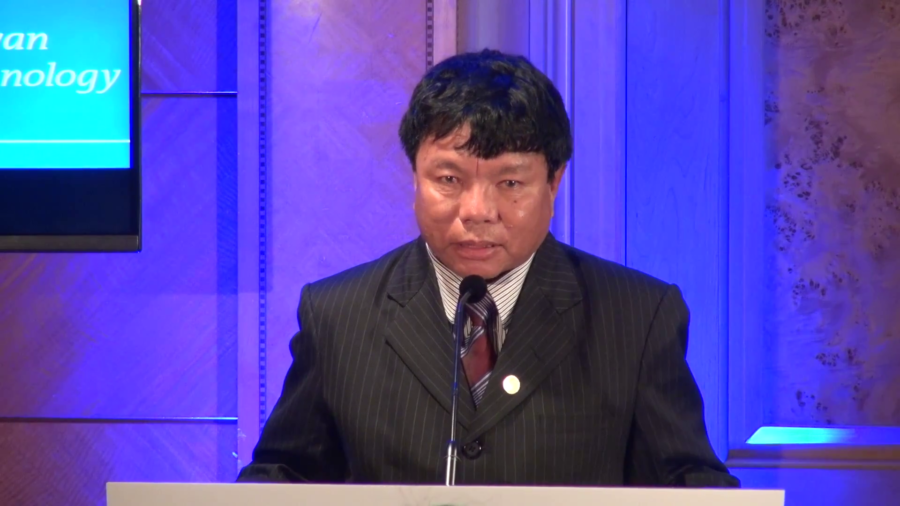Mahabir Pun: Thank you very much for inviting me to speak, and I would like to thank you all for inducting me in the Hall of Fame. I did not invent an important thing. I am not an innovator. The only thing I did is you know, in early 2000, when WiFi was just coming I used a simple indoor router to make a long-range wireless link, a forty-kilometer link, to bring Internet in my home village. That was the start.
I did not know at that time much about the technology itself. I could not have done everything without the help of these undergraduate university students from America and Europe. It was a time when it was illegal. The government had banned to use all kind of wireless equipment, and to bring it into the country because of the fighting going on there.
So, those university students, undergraduate students, they helped me to smuggle everything, all these small indoor routers to the country. And they helped me build. I worked as a team leader for them, but without their help I could not have done that. We used a small indoor router and built our own antenna, different type of antennas, and became able to build the long range wireless link. And it was very surprise to most of these telecommunication engineers, professionals, because they’d heard that it would not work. But that worked.
So I would like to thank those friends from the early days also. I worked for four years, from 2002 to 2006, building a wireless network in the remote areas. And most of these areas, they don’t have any roads and they don’t have any telephones, no electricity. I worked illegally. We built the network illegally and brought the Internet there and they introduced into the schools and the communities.
So in 2006, I went to the member of parliament and I gave them a presentation telling them what we did to bring Internet in the remote areas. And I told them how it is useful for the people in the remote areas as well. And I asked them to legalize it. So, within a week they legalized the network, and they delicensed the 2.4 and the 5.8 gigahertz frequencies. So it’s legal now.
So we are using to 2.4 and 5.8 gigahertz to build wireless networks in the remote villages where no commercial providers are going. Because it is not financially feasible for the commercial providers to go in the remote and provide Internet service and bring the benefit of the technology for the rural people. There fore I’m doing [it], and I hope that this work will help me to convince the government to do more to introduce the technology in the area, for the benefit especially for the people who are at the bottom of the pyramid.
So I am not only advocating with the government for open and the free Internet. I am advocating with the government to make the Internet available freely also. Because the people simply cannot afford to have it. So for that, what I am advocating with the government is to use the Universal Obligation Fund to provide free Internet for the people in the rural areas end bring the benefit of the technology there. Thank you very much.
